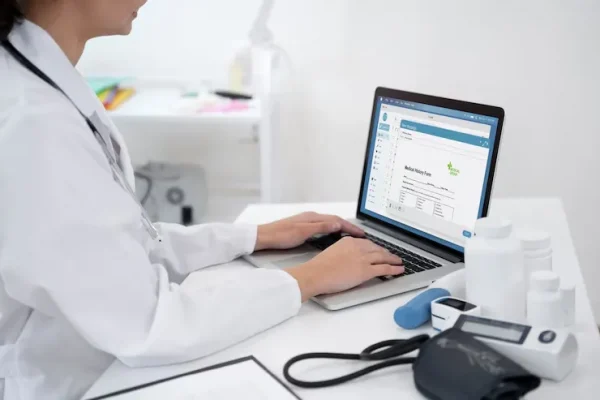If you work in behavioral health billing, you’ve probably seen 96130 on a claim or superbill and wondered exactly when (and how) to use it. You’re not alone.
Psychological and neuropsychological testing codes can feel like alphabet soup, overlapping with other cognitive assessments, extended evaluations, and multiple providers touching the same patient record.
It’s one thing to run the tests. It’s another to know which piece of the process each code actually covers, and that’s where 96130 trips people up.
At Cadence Collaborative, we help healthcare teams decode these details every day. So, let’s break it down clearly.
What Is CPT Code 96130?
Put simply, CPT code 96130 is used to bill for psychological testing evaluation services provided by a licensed psychologist or other qualified professional.
It covers the first hour of time spent:
- Reviewing and interpreting test results
- Combining findings from patient history, clinical notes, and assessments
- Writing a full report that pulls all the pieces together
- Discussing the results and next steps with the patient or family
The actual test administration, the part where the patient answers questions or completes tasks, is coded separately.
96130 is about the professional analysis and recommendations that turn raw scores into clear, meaningful guidance for treatment.
When Should You Use 96130?

Here’s where teams sometimes get tripped up: 96130 isn’t about the test questions or the forms the patient fills out; it’s about what happens after the tests are done.
You should bill 96130 when a licensed psychologist (or other qualified professional) spends dedicated time to:
- Review and interpret the results of standardized psychological tests
- Integrate findings from patient history, clinical observations, and other assessments
- Prepare a detailed written report summarizing results and recommendations
- Discuss the results with the patient, parents, or other authorized parties
The first hour of this work is billed under 96130. Any additional time (each extra hour) is billed separately with 96131, which is an add-on code.
Common Mistakes When Billing 96130 (And How to Avoid Them)
Billing for psychological testing services can be a minefield, especially when it comes to splitting time between test administration, scoring, and the evaluation/reporting piece that 96130 specifically covers.
Even experienced billers get tripped up here.
Mistake 1: Confusing Test Administration With Evaluation Time (and E/M Overlap)
One of the biggest mix-ups happens when teams try to use 96130 to bill for time spent actually giving the tests to the patient. That is not what 96130 covers.
Key point:
96130 does not include the test administration and scoring. Those services are billed separately under 96136/96137 (or 96138/96139 if done by a technician).
It is also common for practices to bill an E/M visit code, like 99213 or 99214, on the same day as 96130, if the provider performed a separate and medically necessary evaluation and management service.
When doing this, you must append the proper modifier (like Modifier 25) to the E/M code to show that it was a distinct, separately identifiable service.
How to avoid it: Always split out the time. Use 96136/96137 for test administration and scoring. Use 96130/96131 only for the professional’s interpretive time, report writing, and feedback session.
If an E/M visit happens at the same time, document clearly how it is separate, and use the right modifier to prevent denials.
Mistake 2: Billing 96130 Without Supporting Documentation
Payers expect clear documentation, especially for a code that covers professional analysis and report writing.
If your notes do not show exactly how much time was spent interpreting, writing, discussing, or performing any related service, a denial is almost guaranteed.
This is extra important if you are billing an E/M code along with 96130 on the same day. The time for each must be clearly documented as separate.
If you do not show exactly how much time went to the E/M portion and how much time went to the psychological testing evaluation and report, payers may reject the claim or downcode it.
How to avoid it: Keep a clear time log for each piece. Note start and end times for the E/M visit and for the testing interpretation work.
Show how the work ties back to the testing performed. Keep the written report in the patient record and document when results were explained to the patient or family.
Mistake 3: Forgetting the Add-On Code for Additional Hours
96130 only covers the first hour of evaluation and report prep. Each extra hour should be billed with 96131, but teams sometimes forget to add it, leaving revenue on the table.
How to avoid it: Check the total time. If your provider spends 2.5 hours on interpretation and reporting, you should bill:
- 96130 for the first hour
- 96131 x 2 for the additional two hours (rounded up, if documentation supports it)
Mistake 4: Using 96130 for Non-Standardized Tests
Some providers assume any mental health assessment counts for 96130, but this code only applies to standardized psychological testing. It does not cover general diagnostic interviews or informal screenings.
If the visit is a broader psychiatric diagnostic interview without standardized testing, the correct CPT code is usually 90791 or 90792, depending on whether there is a medical component.
How to avoid it: Double-check that the tests billed under 96130 are standardized, validated tools, not just informal screens or brief checklists. If you are unsure, clarify with your clinician and keep an up-to-date list of approved instruments for your practice. If the visit is purely a clinical diagnostic interview, consider using 90791 or 90792 instead.
Mistake 5: Not Coordinating With Other Providers
Sometimes, test administration is done by a technician while interpretation is handled by a psychologist. If roles aren’t clear, it’s easy to duplicate billing or miss part of the service.
How to avoid it: Clarify roles upfront:
- Who’s administering the test?
- Who’s interpreting and reporting?
- Who’s billing for each portion?
Related CPT Codes: How 96130 Fits Into the Bigger Picture
When it comes to psychological and neuropsychological testing, 96130 is just one piece of a broader coding family.
Understanding how the related codes fit together is what keeps your billing accurate and your revenue cycle running clean.
96130 and 96131: The Evaluation & Report Writing Piece
- 96130 covers the first hour of the psychologist’s time spent interpreting test results, integrating information, writing the report, and explaining the results.
- 96131 is the add-on code for each additional hour of this same professional time.
They must be billed together when the work goes beyond 60 minutes, just make sure your documentation supports the extra time.
96136 and 96137: Test Administration by a Qualified Professional
This is where the actual test administration and scoring live.
- 96136 covers the first 30 minutes of test administration and scoring by a qualified healthcare professional.
- 96137 is used for each additional 30 minutes.
Example: A licensed psychologist personally administers a battery of tests that takes 90 minutes to complete. The coding for the administration piece would be:
- 96136 x 1 (first 30 min)
- 96137 x 2 (two additional 30 min units)
96138 and 96139: Test Administration by a Technician
When testing is done by a technician or psychometrist under the supervision of a licensed psychologist or physician, you use:
- 96138 for the first 30 minutes
- 96139 for each additional 30 minutes
So the logic is the same, only the rendering provider changes.
96132 and 96133: Neuropsychological Evaluation
This pair is similar to 96130/96131, but specific to neuropsychological testing, which is more complex and often involves assessing higher-level cognitive functioning, brain injury, or developmental disorders.
- 96132: First hour of neuropsychological test evaluation services
- 96133: Each additional hour
Don’t Mix These Up
A quick recap for your cheat sheet:
| CPT Code | What It Covers | Key Details |
| 96130 | 1st hour of psych testing, eval & report | Interpretation, integration,and report |
| 96131 | Each add’l hour | Must follow 96130 |
| 96136 | 1st 30 min admin/scoring by provider | Face-to-face with the patient |
| 96137 | Each additional 30 min admin/scoring | Must follow 96136 |
| 96138 | 1st 30 min admin/scoring by tech | Under supervision |
| 96139 | Each additional 30 min admin/scoring by tech | Must follow 96138 |
| 96132 | 1st hour neuropsych eval | Similar structure to 96130 |
| 96133 | Each additional hour of neuropsych eval | Must follow 96132 |
Bring It All Together
The big takeaway? Don’t let these codes get swapped or stacked incorrectly. Every piece, from test time to interpretation, needs its own place on the claim.
That’s how you get paid fully for the full scope of your team’s work.
At Cadence Collaborative, we help practices untangle these details, clean up documentation workflows, and keep psychological testing billing compliant and efficient.
Final Checklist: Are You Billing 96130 the Right Way?
Before you submit that claim, pause and check these quick must-haves. If you can answer yes to all, you’re on the right track:
- Is the testing standardized, documented, and clearly medically necessary?
- Did you separate administration/scoring time (96136/96137 or 96138/96139) from interpretation/reporting time (96130/96131)?
- Does your documentation show start and stop times for each piece?
- Is the written report complete, filed, and tied to the billed date of service?
- Did you check for add-on hours beyond the first 60 minutes (96131)?
- Are the roles clear if a technician helped with testing?
- Is your billing team fluent in how these codes align with your coding workflows and medical billing policies?
When these details line up, your revenue cycle flows the way it should, clean claims, fewer denials, and full payment for the real value you deliver.
Need a Partner to Keep It Straight?
At Cadence Collaborative, we help healthcare teams master complex medical billing, untangle testing code sets like 96130, and tighten up coding workflows that protect your bottom line.
From staff training to documentation audits to full revenue cycle management strategy, we’re here to make your day-to-day billing smoother, so you can focus on what you do best: patient care.Ready to get it right, every time? Contact us today at (401) 743 – 2428!






